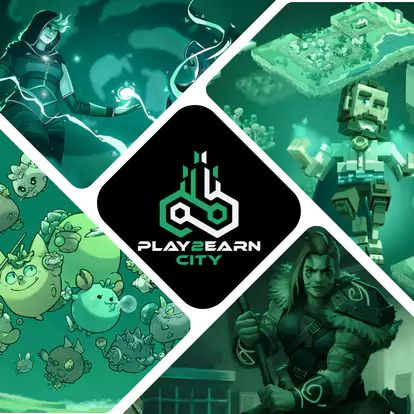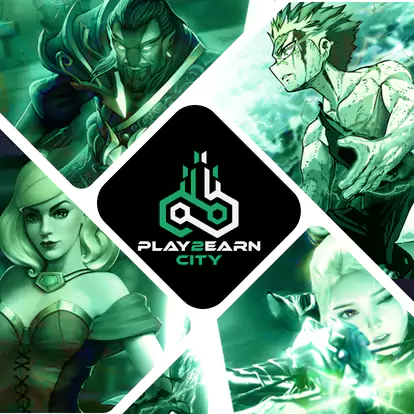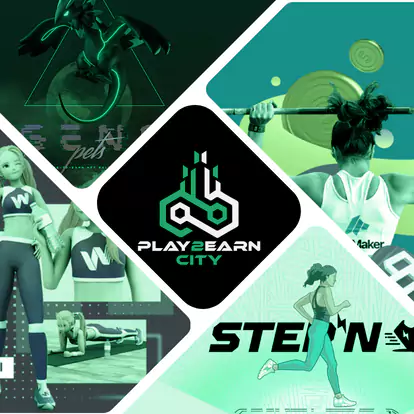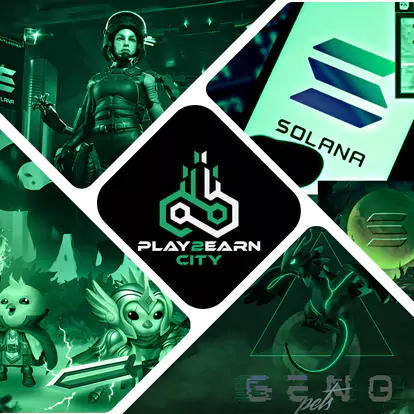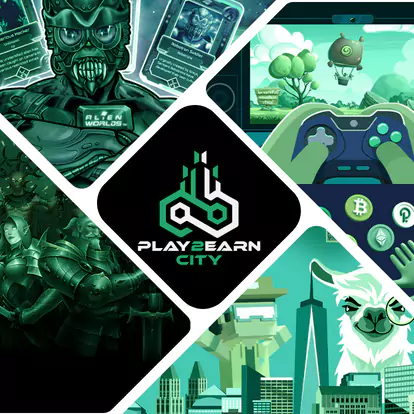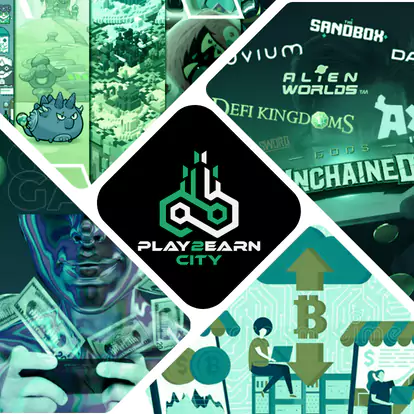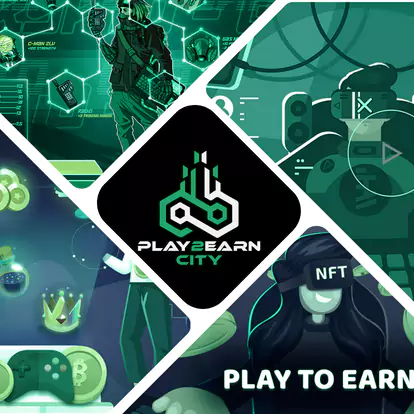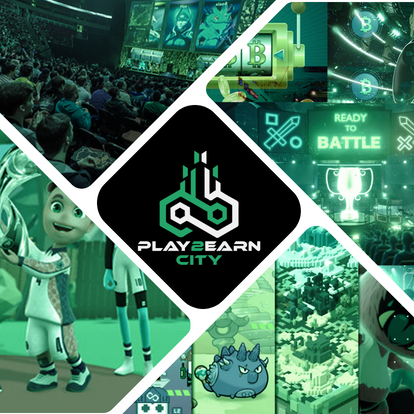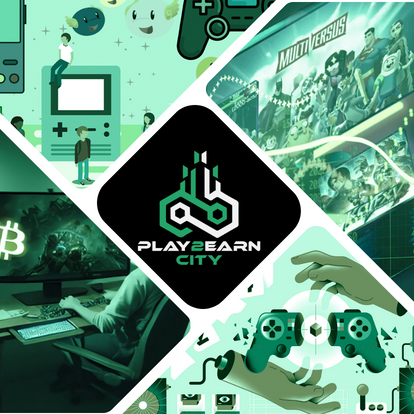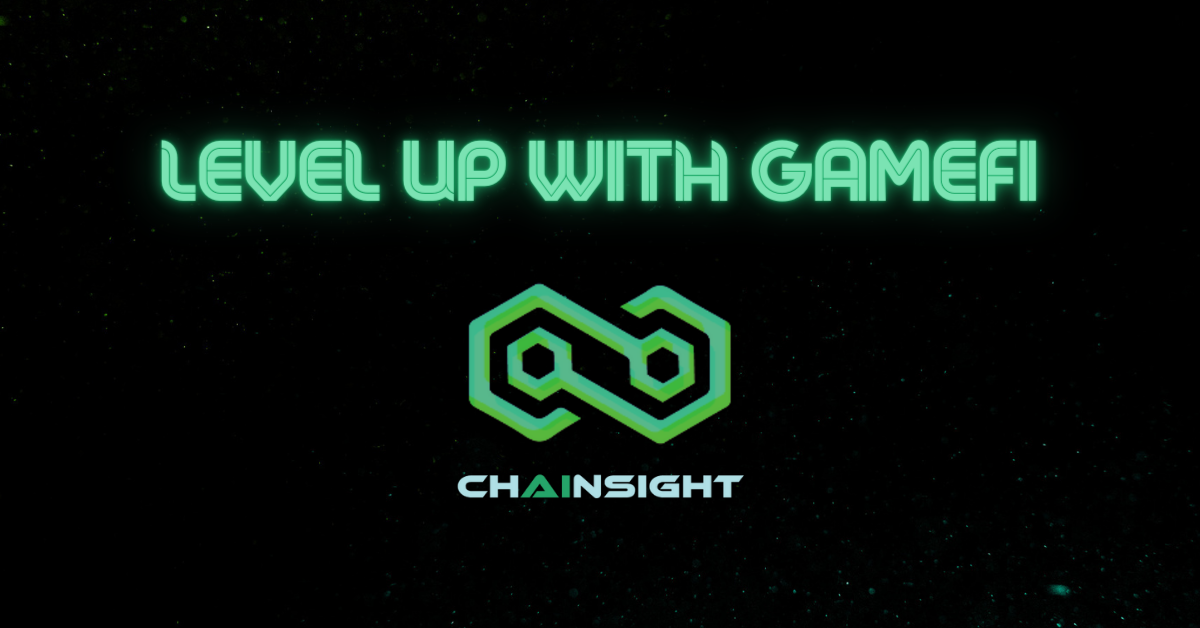
From Ernest Cline’s bestseller, Ready Player One to 60-minute-long episodes on Black Mirror, the potential for the metaverse and virtual space is evident with so many fictional use cases. Some schools of thought propose utopia and some a dysfunctional future in VR, AR, and gaming.
The advent of blockchain technology has seen developments in virtual reality and reignited interest in developing the architectural framework of a virtual universe now dubbed the metaverse. Gaming will play a huge role in this development. The wheels on which this virtual universe will hitch on will need functionality, practicality, and likeness to real-world scenarios for users like economics.
Users will need to transact, trade, and exchange virtual assets and information. The combination of virtual gaming and finance will be the anatomical foundation for this. Hence, the portmanteau GameFi is an amalgamation of gaming and finance. This concept accommodates the entertainment of gamers as well as the interests of investors hunting for an avenue to get profitable.
The Virtual Manifesto Signed by GameFi
The Virtual Manifesto, signed by GameFi, is the ultimate guide to unlocking the potential of the Metaverse, where gamers and investors unite to create a vibrant and dynamic virtual economy. From gaming to commerce, education to entertainment, the Metaverse offers a new horizon for those willing to embrace the future.
The Metaverse is a term used to describe a collective virtual shared space that is created by the convergence of physical and virtual reality run by a virtual economy.
A Virtual Economy
The virtual economy is a fascinating and untamed frontier of the digital world, where anything is possible and everything is for sale. It's a place of pure imagination, where you can find dragons, unicorns, and other fantastical creatures roaming free, and where you can acquire your very own starship or time machine for the right price.
In this vast and wondrous realm, the laws of physics and economics are constantly being rewritten, opening up new and exciting possibilities for gamers and investors alike.
The metaverse is rapidly transforming the economic landscape, ushering in an on-demand economy that demands a customer-centric approach from companies and creators seeking to do business in this realm.
In this new era, creativity will be the driving force behind the economy, as professionals from various disciplines transfer their skills to the metaverse. With no established competitors or real-world regulations, the barrier to entry is significantly lowered, attracting a host of adaptable creators and quick learners.
However, virtual success in the metaverse calls for more than just creativity. Ventures in this realm must adopt a decentralized and transparent business model, focusing on innovation that prioritizes the user's needs. Not surprisingly, the model of a virtual economy was derived from the mechanism of how games run their economy and this is where gamers will play a huge role.
Role of Gamers in the Metaverse
Did you know that in Venezuela, some people spend up to 11 hours a day playing video games to farm digital goods that they can later sell for foreign currencies? They do it because their national currency is worth less than what they can earn by "gold farming" in virtual games.
Massive multiplayer online (MMO) games like World of Warcraft have been around for many years, providing a platform for players worldwide to compete, socialize, and build virtual communities. However, over the past two decades, these communities have evolved into real economies, with gamers assigning value to virtual goods based on their utility and status within the community and transacting them in real time.
This socio-economic phenomenon has caught the attention of economists, who view these digital communities as a unique opportunity to study economics in ways that were previously impossible. By tracking all inputs and outputs, economists can gain unprecedented insights into real economic behavior, especially regarding how virtual gaming communities place value on digital assets.
Exploring the Economics of Virtual Gaming Communities
Virtual gaming communities offer a unique glimpse into how the value of digital assets is established, providing valuable insights into the potential economic implications of the Metaverse.
The Metaverse is a persistent and infinite digital information space that is becoming increasingly interconnected with our physical world. As we move from computers and smartphones to AR and eventually VR, our interactions with the Metaverse are set to become more frequent and seamless.
Studying the economics of virtual gaming communities can shed light on how we can expect other types of virtual communities to form, including how goods and services are exchanged and how these transactions may impact the physical world.
Gamers and Investors United
The frontrunners of this GameFi concept are gamers and investors. Uniting gamers and investors in the Metaverse requires collaborative efforts from both parties.
Investors can provide funding, expertise, and resources to help gamers develop and market their products and services. Gamers, on the other hand, can provide the creativity, passion, and innovation needed to drive the virtual economy forward.
The benefits of collaboration between gamers and investors in the Metaverse are manifold. For gamers, collaboration with investors can provide access to funding, marketing, and distribution channels, helping them to reach a wider audience and achieve greater success.
For investors, collaboration with gamers can provide access to new technologies, markets, and business models, helping them to stay ahead of the curve and achieve higher returns. Still, this mash-up between both communities is not without its challenges.
Collaborative Hurdles Between Gamers and Investors
One of the biggest challenges is the lack of understanding and trust between the two groups. Gamers may be skeptical of investors who are seen as outsiders, while investors may be wary of the unpredictability and volatility of the virtual economy.
Another challenge is the lack of established business models and regulatory frameworks in the Metaverse, which can make it difficult for investors to evaluate and manage risk.
Despite these challenges, there are also many opportunities for collaboration between gamers and investors in the Metaverse. By working together, they can leverage their unique strengths and expertise to create new sources of value and drive the growth of the virtual economy.
The key to overcoming these challenges is to build trust, establish clear communication channels, and develop a shared vision for the future of the Metaverse and perfect synchrony to the tune of GameFi.
Conclusion
We call on gamers, investors, and all those who are passionate about the Metaverse to come together and collaborate toward building a sustainable and prosperous virtual economy.
Whether you are a gamer with a creative idea or an investor with the resources to make it happen, there is a role for everyone in the Metaverse. Let us work together to create a future that is more connected, more immersive, and more inclusive. A GameFi world that is the right blend of entertainment and profitability. A virtual economic valhalla!

